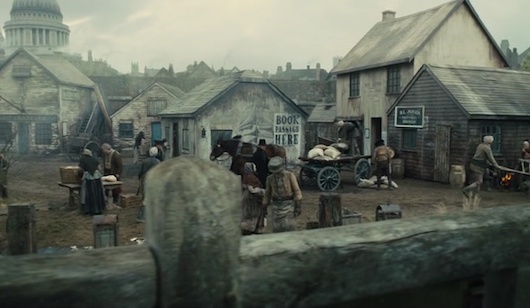 TV
TV In Which Tom Hardy Wears Something For Every Occasion
 Monday, January 9, 2017 at 11:34AM
Monday, January 9, 2017 at 11:34AM 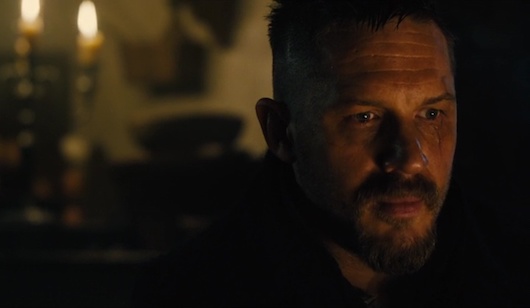
The Masque of Tom's Death
by ETHAN PETERSON
Taboo
creators Steven Knight, Tom Hardy and Chips Hardy
FX, BBC One
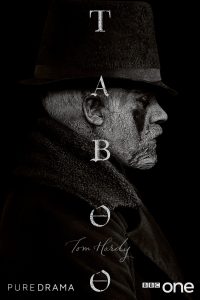 Tom Hardy's body is disguised by a variety of fluffy black coats in the London winter, 1814. He is just back from Africa, where he is very regretful about European colonialism. He is the only one. This proto-Edward Said launches himself onto the cosmopolitan London — the highest building by far is St. Paul's Cathedral, which lurks omnipotently in the background. Tom's father has died with a valuable piece of land in his possession.
Tom Hardy's body is disguised by a variety of fluffy black coats in the London winter, 1814. He is just back from Africa, where he is very regretful about European colonialism. He is the only one. This proto-Edward Said launches himself onto the cosmopolitan London — the highest building by far is St. Paul's Cathedral, which lurks omnipotently in the background. Tom's father has died with a valuable piece of land in his possession.
Tom's half sister's name sounds like a sneeze: Zilpha (Oona Chaplin, granddaughter of someone semi-famous idk) says about four sentences in the early part of Taboo, a new series co-financed by BBC One and FX. But she writes a lot of letters, some under the duress of her profligate husband Thorne (Jefferson Hall), others true stories to her brother. A lot of bad things, we come to understand, happened to them as children.
This, it emerges from the testimony of the acting head of the East India Company (Jonathan Pryce), is the motivation for all bad acts. Pryce is a tired villain, and in Taboo all the composed effluence of his turn as the High Sparrow in Game of Thrones seems to have weakened him. He is becoming quite tiresome to watch, but whatever, it just makes Tom Hardy more charismatic in comparison.
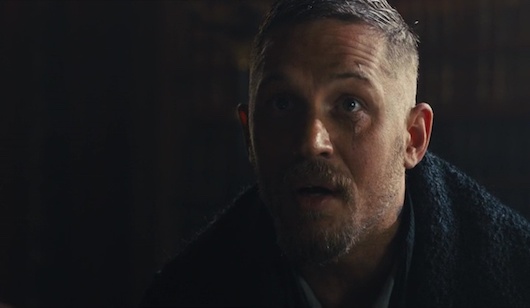
Tom prances from location to location giving everyone the same measure of gruffness. He is well-acquainted with violence, but Taboo at least brings along the onslaught slowly. At first it is not entirely clear why Tom holds such animosity towards the company that however indirectly started his business and gave him his fortune, but who cares? Tom is a racing bullet in a top hat, and it seems only a matter of time before he forces everyone to know it.
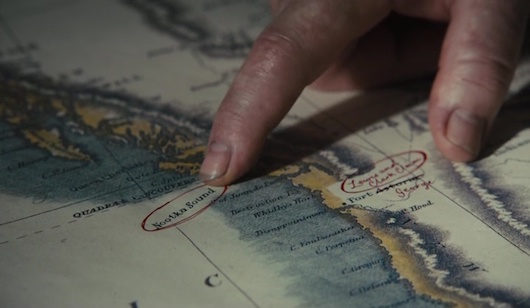
Midway through the first episode of Taboo, Tom is interrupted by an older man who demands compensation for raising a little brother Tom seems to have known something about. He visits the man at a farm outside of London, where he witnesses the boy using what I can only describe as a large fork to move hay from one pile to another. "I'm not the sort of man fit to be around children," he announces.
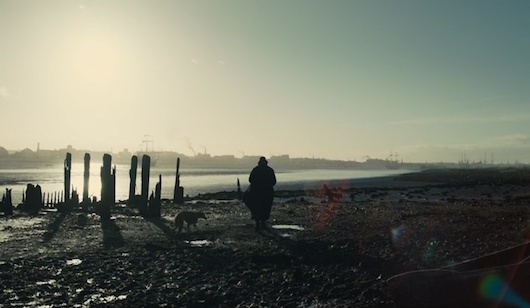
It is hard to key in on what Tom desires so badly he is forced to act like such a madman. He forces a doctor to dig up his father's body in order to perform what I can only assume is the first autopsy in the history of mankind. The next morning finds sunlight penetrating Tom's father's quarters, and the man grimaces as if light itself could be diminished by averting our eyes.
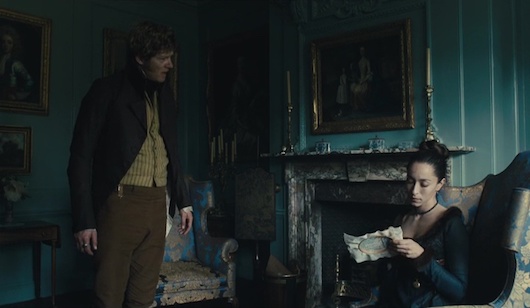
Creator Steven Knight (Peaky Blinders) already has plenty of money, and his projects generally avoid the flaccid compromises of traditional television. Taboo is a fun, if a bit mean-spirited romp through an exciting period for Great Britain. What Knight is best at is not transposing contemporary attitudes and preferences to life in the past. The characters of Taboo are entirely alien to us in some respects, and the bracing difference is felt in every action and decision.
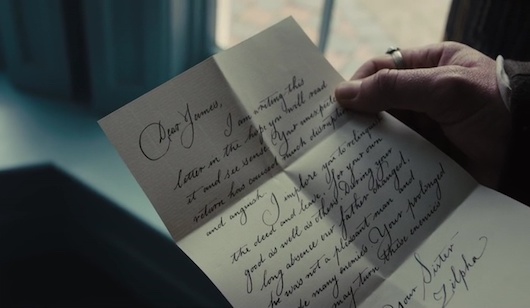
I would never complain about watching Tom Hardy, but many of these scenes feel a bit familiar. Giving Tom colonialism to battle is something a bit new, but the way in which he plans on dismantling and resisting this iteration of modernity remains well-worn ground. It would be fun to see Tom in something completely different, which he could show a few different angles. As fun as it is to watch, what is the point of casting the best actor on the planet to always play a gruff, unhappy man?
Ethan Peterson is the reviews editor of This Recording.
